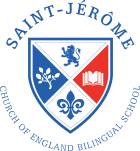Our Partners
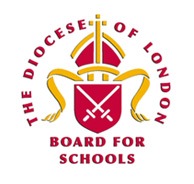
The Diocese of London Board for Schools
The London Diocesan Board for Schools is renowned for opening and maintaining successful Church of England Schools. All their new schools have been well received by Ofsted at their first inspection and they have one of the most experienced project management teams for setting up new schools in London.
The Church of England has established and maintained schools for the people of London for hundreds of years. In 1924, the London Diocesan Board for Schools was set up to be the educational arm of the London Diocese. With 90 years of experience, running over 150 schools in London’s local authorities, our schools have successfully provided excellent education to a range of communities of different faiths, including schools where the majority of children come from families of other faiths, or none. All children, of all backgrounds are welcome.
The London Diocesan Board for Schools is renowned for opening and maintaining successful Church of England Schools. All their new schools have been well received by Ofsted at their first inspection and they have one of the most experienced project management teams for setting up new schools in London.
90% of LDBS secondary schools are rated good or outstanding by Ofsted compared to 73% nationally. 87% of LDBS primary schools are good or better compared to 83% nationally. 100% of the new LDBS schools that have opened in the last 10 years are were rated good or outstanding at their first inspection.
Discover more about the LDBS via their website here.
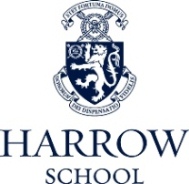
Harrow School
Harrow is one of Britain’s leading independent schools, one of a very few schools still specialising in providing a high quality boarding school education for boys. Founded in 1572 under a Royal Charter granted by Elizabeth I it has been providing education to boys for over 400 years.
Two members of our Governing Body work at Harrow School and we have been delighted with the school’s efforts to support St Jérôme, by allowing us to use their facilities to hold our Sports Days.
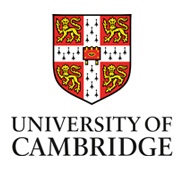
Department of Theoretical and Applied Linguistics at Cambridge University
The Department of Theoretical and Applied Linguistics was created on 1 August 2011 by merging the former Department of Linguistics and the Research Centre for English and Applied Linguistics. The Department is part of the Faculty of Modern and Medieval Languages.
The Department pursues an interdisciplinary approach to theoretical and applied linguistics and avoids uncritical adherence to particular views and theories. Building on the strengths of the previous institutions, the new department covers a comprehensive range of the language sciences and offers excellent theoretical and empirical research in a broad spread of fields from historical linguistics and comparative syntax to language processing and computational linguistics.
We have been delighted with the support they have given to us in exploring bilingualism for primary school children. We will continue to work with the department to share ideas and best practice as St Jérôme grows.
You may already be aware that St. Jérôme School has secured a long-term research partnership with the Cambridge University Bilingual Network. We know this partnership will help us to make sure that we are always offering the very best to our children, and we are very excited to announce that the Cambridge University Bilingual Network is launching its first piece of academic research with and for St. Jérôme School. This is the first stage of our long-term research partnership and we would love you to take part.
By completing the survey you will be contributing to ongoing research into bilingual education. All data will be analysed by researchers at Cambridge University and all individual survey responses will remain confidential. The research findings and conclusions will be shared with St. Jérôme School before the school opens and this feedback will be invaluable in helping us with our planning, to make sure that every child makes good progress and benefits from the bilingual environment. The researchers are interested in hearing from a wide range of parents: those who have already applied for a place at the school, those who are considering applying for a place in the future, and those who have a more general interest in bilingual education – so please feel free to forward this newsletter and the link to the survey to anyone you know who has young children.
The survey will take about 15 minutes. Thank you for your help.
http://cambridge.eu.qualtrics.com//SE/?SID=SV_55yq0L8lM3mi9OR

Eurostar
It is a privilege to be accepted as a partner of Eurostar International and they are committed to partnering with St Jerome School in a fantastic range of ways:
Eurostar visits to St Jerome School Eurostar staff (from engineers to customer services staff to train managers) will visit the school for talks and interactive lessons in English and French
Travel to France for school trips and visits to our partner school – on the Eurostar, naturally
School visits to the station, offices and driver simulator to support the languages, geography and science curriculum and to help the children to experience and understand some different types of working environment
Participation in station events maybe our school choir might sing to passengers on a special occasion
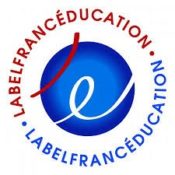
LabelFrance
Launched in 2012, the “LabelFrancÉducation” seal is granted to schools promoting French language and culture as part of their specific curriculum. “LabelFrancÉducation” recognizes and rewards public or private schools that offer students enhanced instruction in the French language while also teaching other subjects in French. “LabelFrancÉducation” promotes outstanding education in French among students and parents.
“LabelFrancÉducation” is granted by the French Ministry of Foreign Affairs based on the advice of an interministerial advisory committee composed of representatives from the French Ministries of Foreign Affairs and Education, the Agency for French Education Abroad (AEFE), the French institute (IF) and Mission Laïque Française, a non-profit organization.

Institut français
Part of a worldwide network, the Institut français in London encourages cross-cultural exchange and presents the best of French culture. Enjoy our wide offer: French courses (online or at our venue), film screenings, library collections, kids’ activities, festivals, talks and concerts.
Founded in 1910, the Institut français du Royaume-Uni comprises a language centre, a cinema (Ciné Lumière), a multi-media library (La Médiathèque), a children’s library (Bibliothèque Quentin Blake) and a café-restaurant, and welcomes 200,000 people each year.
The Institut also collaborates with schools in the UK on educational cooperation programmes to promote French language learning and organise teacher training, so that French can remain the UK’s top choice for foreign language study.
Dedicated to helping children learn and discover new aspects of culture, the Institut offers years-round activities and resources for kids, families and schools, in addition to its annual festival dedicated to children’s literature, the South Ken Kids Festival.
